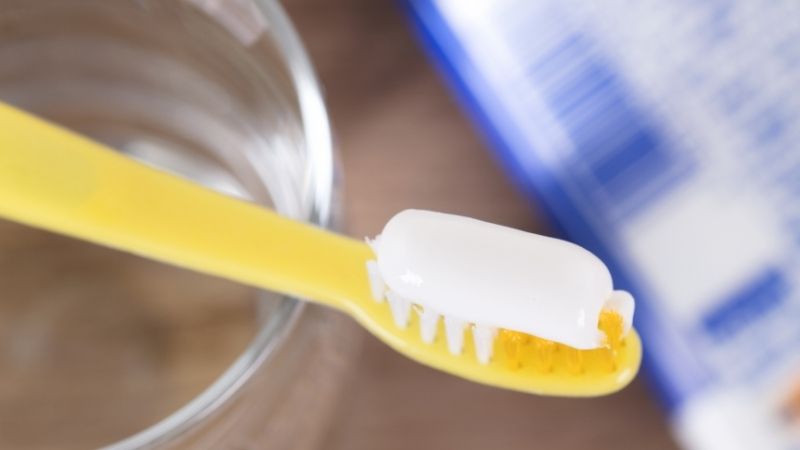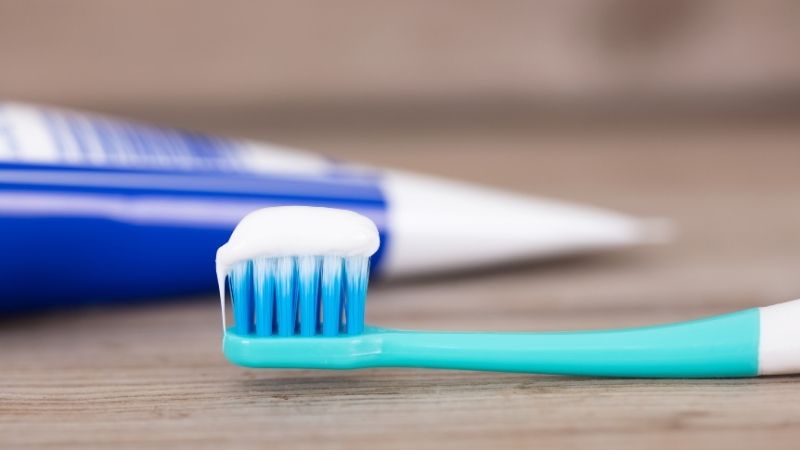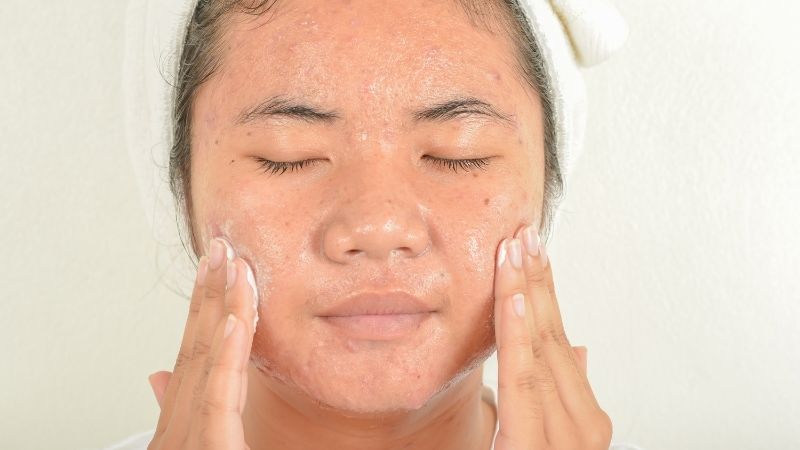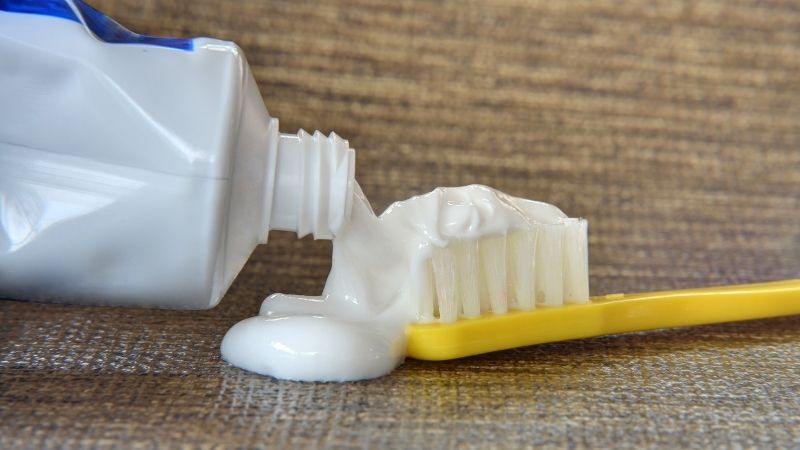Toothpaste is known for its various benefits, most notably its ability to treat acne. Some people also believe that washing your face with toothpaste will make your skin lighter. But is this really true? Let’s explore the effects of toothpaste on the skin and find out if washing your face with toothpaste is a good idea.
1. Benefits of Toothpaste for the Skin
 Toothpaste helps treat acne
Toothpaste helps treat acne
According to dermatologist Tsippora Shainhouse in the United States, peppermint oil in toothpaste can help reduce swelling and pain when applied to acne lesions. Toothpaste also offers other benefits, such as:
-
A popular use of toothpaste is to treat blackheads and whiteheads. Due to its triclosan content, which has antibacterial properties, toothpaste helps eliminate blackheads and unclogs pores.
-
Treat and prevent acne due to the anti-inflammatory properties of toothpaste.
-
Fade dark spots and brighten the skin when used in conjunction with other skincare products.
-
Toothpaste contains calcium carbonate, which is effective at absorbing excess oil and controlling sebum production, resulting in cleaner skin.
Stay tuned for more amazing benefits of toothpaste!
2. Is Washing Your Face with Toothpaste a Good Idea?
 Avoid washing your face with toothpaste
Avoid washing your face with toothpaste
It is important to note that toothpaste contains active ingredients that can positively impact acne-prone skin. Many people have used toothpaste to wash their faces and have been surprised by the positive results, including a cleaner, brighter complexion and a reduction in blackheads and acne. However, some individuals have also experienced discomfort, dryness, swelling, and itching after using toothpaste as a facial cleanser.
Research indicates that toothpaste is effective at cleansing the skin for individuals with oily and acne-prone skin. On the other hand, those with dry or sensitive skin should refrain from using toothpaste as it can cause severe irritation.
Additionally, Dr. Tsippora Shainhouse advises that using toothpaste as an acne treatment is only a temporary solution and should not be overused. Toothpaste is not specifically designed for acne treatment and may irritate the skin, making acne worse. Here’s why:
-
Toothpaste contains antibacterial agents that can be harsh on the skin if overused. Applying it to the entire face can lead to adverse effects on the skin.
-
If you have dry or sensitive skin, using toothpaste as a facial cleanser can severely damage your skin.
-
It is important to use toothpaste for skincare properly to avoid potential harm.
While toothpaste may offer some skincare benefits, it is strongly advised against using it to wash your face.
For further reading:
3. Harmful Effects of Applying Toothpaste to the Face
 Harmful effects of applying toothpaste to the face
Harmful effects of applying toothpaste to the face
The face, particularly the facial skin, is a sensitive area that is susceptible to damage. Using toothpaste incorrectly can lead to serious consequences, such as:
-
Dry and flaky skin, especially for those with dry skin. While calcium carbonate in toothpaste helps remove excess sebum, it can also dry out the skin.
-
Toothpaste can cause skin lightening and make the skin more susceptible to sun damage.
-
Skin irritation, itching, and flaking can occur due to the presence of sodium fluoride in toothpaste, which has antibacterial properties. In more severe cases, redness and inflammation may occur, especially for those with sensitive skin.
-
Toothpaste contains substances like hydrogen peroxide, alcohol, and peroxide that can lead to dry and flaky skin as they aggressively remove dead skin cells, causing skin thinning.
4. Skincare Tips with Toothpaste
 Skincare tips with toothpaste
Skincare tips with toothpaste
Despite the anecdotal evidence of its effectiveness, the method of skincare using toothpaste has not been scientifically validated by experts. Dermatologists strongly advise against using toothpaste for facial skincare.
If you still want to experiment with toothpaste for skincare, consider the following suggestions:
-
Wash your face with warm water before using toothpaste.
-
To treat blackheads, apply toothpaste to the affected areas and gently scrub. Leave it on for about 20 minutes or overnight, then rinse with water and apply a moisturizer.
-
To treat acne with toothpaste, gently apply a small amount to the affected areas. Leave it on for about 30 minutes or overnight, then rinse with water and apply a moisturizer.
Important notes when using toothpaste for skincare:
- If you have sensitive skin, it is not recommended to use toothpaste for skincare. The duration of toothpaste application depends on your skin’s sensitivity.
- For dry skin, limit the application to 30 minutes and rinse thoroughly afterward.
- Choose a toothpaste without strong detergents and with mild ingredients.
- Consult a dermatologist before using toothpaste for skincare.
Washing your face with toothpaste can be harmful if not done correctly, leading to dry and flaky skin and even allergies. For healthy skin, it is essential to practice proper skincare habits and avoid using toothpaste as a facial cleanser.
So, should you wash your face with toothpaste? Based on the information provided, the answer is no. Prolonged use of toothpaste as a facial cleanser can have negative effects on the skin. Check out our range of quality toothpaste brands such as P/S, …
Don’t miss out on the following information:






























